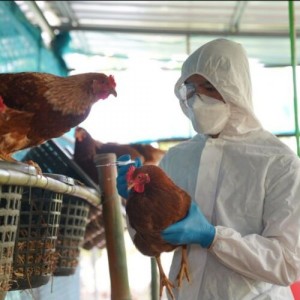Effects of valacyclovir in cats infected with feline herpesvirus 1
Objective
To determine whether orally administered valacyclovir can be used safely and effectively to treat cats with primary, feline herpesvirus 1 (FHV-1) infection.
Animals
14 specific-pathogen-free adult cats.
Procedure
Cats were infected with FHV-1 strain 87-727 (300 μl, 107 plaque-forming units/ml) by ocular and nasal inoculations, and were treated every 6 hours with dextrose (controls) or valacyclovir (60 mg/kg of body weight, PO). Virus shedding from both eyes and the oropharynx was monitored every 2 days by virus isolation, and subjective clinical scores were assigned daily for ocular and nasal discharge and conjunctival hyperemia. Urinalysis, CBC, and serum biochemical analysis were done prior to inoculation, and on days 2, 5, 7, 9, and 12 of infection. Differences in CBC and serum biochemical indices between groups were compared, as were differences between preinfection values and maximal postinfection values, rectal temperature, and scores for disease severity.
Results
All cats developed acute conjunctivitis and rhinitis typical of FHV-1 infection. Beginning between days 6 and 9, valacyclovir-treated cats became noticeably more lethargic and dehydrated than did cats of the control group. Total WBC and neutrophil counts were significantly lower in cats of the valacyclovir group. The experiment was terminated on day 12 for humane reasons. Histologic changes attributable to FHV-1 infection were similar in all cats. Additional histologic abnormalities seen only in the valacyclovir-treated cats were coagulative necrosis of the renal tubular epithelium, centrilobular atrophy and hepatic necrosis, and severe bone marrow depression.
Conclusions
Cats appear to be uniquely sensitive to the toxic effects of valacyclovir, and even high doses appear not to suppress FHV-1 replication in acutely infected cats.
Clinical Relevance
Use of valacyclovir is of questionable value in cats with acute FHV-1 infection and, at high doses, the drug may be toxic. (Am J Vet Res 1997;58:1141–1144)
Authors: Mark P. Nasisse, David C. Dorman, Keith C. Jamison, Benjamin J. Weigler, Eleanor C. Hawkins, Jerry B. Stevens
Source: https://avmajournals.avma.org/













List
Add
Please enter a comment